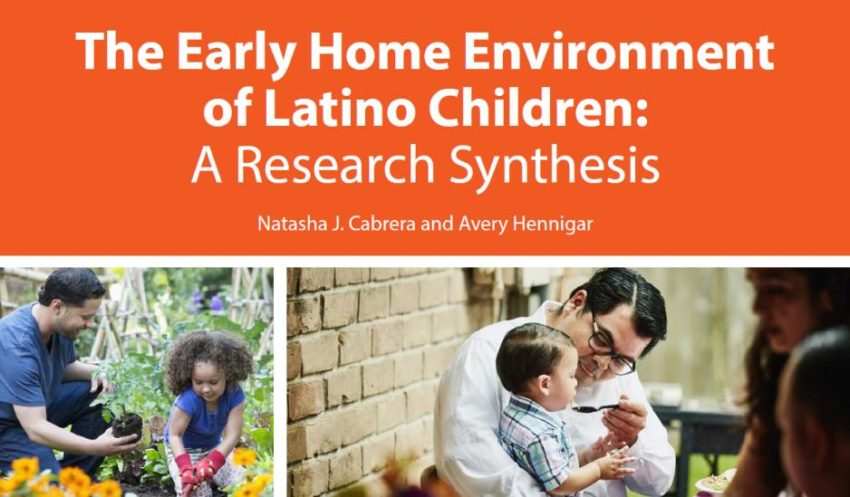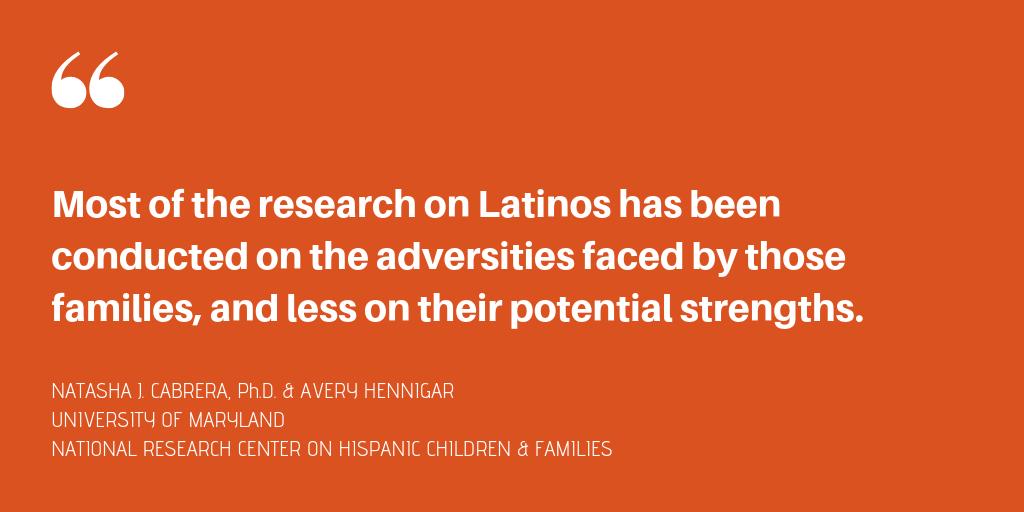
Share On Social!
Early childhood experiences impact early-stage development, lifelong health, and overall wellbeing.
There is an urgent need to conduct research on the early home experiences of Latino children, according to a new report from the National Research Center on Hispanic Children and Families.
Current research focuses more on families’ risk factors and deficits, rather than on protective factors and strengths. Moreover, much of the research that concentrates on early home environments to date has studied white, middle-class families.
Little is known about how cultural norms, beliefs, values and expectations are embedded in Latino parenting and how Latino parenting practices promote development and cognitive and social competence.
The National Research Center on Hispanic Children and Families explored existing research on the early home environments of Latinos children to identify gaps in research. The group also provided recommendations for research, programs, and policies in their May 2019 report, The Early Home Environment of Latino Children: A Research Synthesis.
Narrow View of Latino Childhood Development
Latino families are complex entities with diverse economic experiences, family structure, resources, and immigration history.
Many Latino children live in relatively stable two-parent households with parents who are steadily employed.
Numerous others live with parents who have low levels of education and are likely to experience stress due to economic hardship, immigration status, and finding appropriate childcare.
However, most existing research has limitations, including an overrepresentation of findings that cannot be applied to the Latino community at-large, according to the report.
“Much of the research treats Latinos as a homogenous group,” the report states. “Findings based on a particular group—for example, Mexican Americans, who are the largest ethnic group in the United States and the most frequently studied—are then implicitly or explicitly generalized to all Latinos in the United States.”

There is lacking information about how Latinos’ socialization processes, cultural norms, beliefs, values, or expectations are embedded in parenting style and the results in their child’s development.
Most studies have examined maternal education and income. Yet, few studies have examined socialization practices and social and emotional development.
Even worse, studies of Latinos have focused largely on one social identity without acknowledging other social dimensions, such as gender, nativity status, or language. There is an insufficient understanding about unique sources of instability and stress as well as how parenting practices like family routines promote cognitive, social competence.
Moreover, existing research on Latinos families has covered risk factors and deficits that focus on disparities or adversity rather than on protective factors and strengths.
“It is striking that most of this research has focused more on the adversities that Latino families face, rather than on their strengths, that it confounds ethnicity and socioeconomic status (SES), and that it does not consider the heterogeneity of Latinos in the United States,” the report states.
Implications for Research, Programs and Policies
Latinos and all Americans need more systematic, theoretically rigorous research to understand how specific aspects of a child’s home environment can support social, physical, and mental development, in addition to their cognitive development, across their lifespan.
Research on Latinos should balance a focus on inequity, but also a concentration on strengths. Those studies should also explore what coping skills these families have and which they need to develop.
Overall, a greater focus is needed on the interplay of multiple protective factors and the intersectionality of socioeconomic status, ethnicity, nativity, and language and immigration status.
Programs should build on and nurture Latino home environment strengths, such as strong family orientation, work ethic, and high motivation to help their children. They also can help families secure high-quality child care and schools; and involve fathers.
Children and families should be supported in strengthening their native language while becoming proficient in English and programs should provide services that reduce parenting stress and economic hardship.
Furthermore, community programs can support Latinos in strengthening their native language while becoming proficient in English. Other initiatives include providing services that reduce parenting stress and economic hardship.
“The findings also support the idea that when parents have more resources, they are likely to invest them in their children,” the report states.
Read the full report and share with researchers and community leaders.
Elevate the importance of learning more about how the early home experiences of Latino children help them grow and develop.
By The Numbers
142
Percent
Expected rise in Latino cancer cases in coming years



